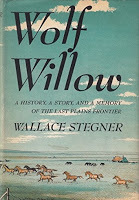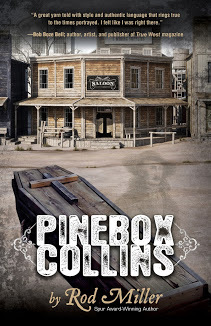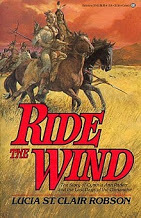Rod Miller's Blog, page 13
September 15, 2020
My favorite short story.
“Genesis” is a long short story—82 pages—tucked into the middle of Wallace Stegner’s Wolf Willow. The tale’s main character is Lionel “Rusty” Cullen, a 19-year-old Englishman who migrated to cattle country in Saskatchewan, intrigued by the romance of the Old West and in search of adventure. It didn’t take him long to realize his notions of cowboy life were misguided:
Already, within a day, Rusty felt how circumstances had hardened, how what had been an adventure revealed itself as a job.
Rusty also realizes he is but a pilgrim, least among the nine cowboys who ride out on a late fall roundup to bring in calves for winter feeding. Still, he is determined, even eager, to give it his best, to prove himself a man among men.
As with many Westerns, landscape and weather are also characters in the story. The roundup is interrupted repeatedly by early blizzards that scatter the cattle time and again. The storms become so violent and the cold so brutal the men are forced to abandon the herd, even the remuda, to race across the plains at a snail’s pace, trying to outrun death itself.
Romantic notions, if any still exist at this point, are further disabused by the awareness that these men, and others like them throughout the West’s cattle country, put their lives at peril:
For owners off in Aberdeen or Toronto or Calgary or Butte who would never come out themselves and risk what they demanded of any cowboy for twenty dollars a month and found.
As much as I like “Genesis” for what it includes—a realistic look at cowboy life and work, albeit in extreme circumstances—I like it for what it does not include. There’s not a single gunfight. No Hollywood walk-down quick-draw contest, no snarling packs of bad guys shooting up the streets and back alleys and saloons of a wooden town. There’s no damsel in distress—unless you count mother cows and heifer calves. No splendid super steeds racing at top speed across page after page with nary a stop for a blow, a sip of water, a mouthful of grass. And there are no six-foot-tall bulletproof heroes with broad shoulders, narrow hips, and a steely gaze.
That’s not to say there’s no courage, bravery, or heroics in “Genesis.” But it’s realistic valor, not the over-the-top imaginary superhero stuff so common in Western stories. Stegner sums it up best when, near the end of the tale, he says this about Rusty:
It was probably a step in the making of a cowhand when he learned that what would pass for heroics in a softer world was only chores around here.
September 4, 2020
Really stupid words, Chapter 13.

Long, long ago, back in the 1970s, there was a popular television show titled The Six Million Dollar Man. The idea was that a test pilot crashed and wrecked his body, but surgeons and scientists fixed him up by adding a lot of wires and circuits and stuff to make him half-man, half-robot with extraordinary mental and physical powers. Every week, during the show’s introduction, as we’d watch a montage of doctors at work and futuristic computer renderings and such, a weighty voice would say, among other things, “Gentlemen, we can rebuild him. We have the technology.”
It’s only a guess on my part, but I think today the voice would say, “Gentlemen, we can rebuild him. We have the technologies.”
I don’t know why. Technology is a collective of sorts, and works perfectly well in the singular form for any purpose. But nowadays, you hear it with an “ies” stuck on the end more often than not.
One of my dictionaries defines technology as “The branch of knowledge that deals with the creation and use of technical means,” and “a scientific or industrial process, invention, method, or the like.” I added all those italics to emphasize the singular nature of the idea.
Wikipedia says, “The suffix ology is commonly used in the English language to denote a field of study.” As a field (not fields), technology does not require a plural. Technologies is as useless as biologies, meteorologies, sociologies, geologies, physiologies, and other such unheard-of things.
Don’t ask me why I cringe when I hear “technologies.” Perhaps a therapist would blame it on my deranged psychologies.
August 25, 2020
The Joy of Being Stupid.
Writing a book is a good way to reveal how stupid you are. You have an idea, and you start writing. Soon, you realize you don’t know what you’re writing about.
Take my latest novel, Pinebox Collins. I thought it would be a good idea to tell a story about a man who moved from place to place in the Old West, using his travels and encounters to tell other stories about actual events and people from history. I decided a footloose undertaker might move around like that. And, for some reason, that he should be missing a leg. I don’t know why.
I soon realized there had to be a reason for his missing leg, which took some study of Civil War battles that might fit the bill. Then I had to learn about Civil War hospitals, surgery, amputations, prosthetics, and the like.
Then I had to learn about the history of undertaking, embalming, and building coffins—none of which I knew anything about.
Pinebox’s travels required buffing up my knowledge of cattle trails and cowtowns, mining strikes and boomtowns, stagecoaches and railroads, and historic incidents and events in those places.
Then there were people. Charley Utter, Calamity Jane, Jim Levy, Joe McCoy, John Wesley Hardin, Phil Coe, Jack McCall, Porter Rockwell, and others, mostly “Wild Bill” Hickok—many of whom, but not all, I knew something, but not enough, about.
I enjoy writing. Even the parts that make you realize how stupid you are. With every book, I learn something—many somethings. And I hope the people who read those books might learn something too.
August 16, 2020
My Favorite Book, Part 23.
One of the great stories of the Old West is the life of Cynthia Ann Parker. And the best telling of the story is the novel Ride the Windby Lucia St. Clair Robson.
At about age nine, the Texas girl was kidnapped by Comanche raiders during an attack on her extended family. Her introduction to Comanche ways was brutal, but she was accepted by the band and adapted to their ways, eventually becoming the wife of a leader, and giving birth to one of the most famous Comanche leaders, known to history as Quanah Parker.
Robson’s research digs deep into the era, particularly the minute details of day-to-day Comanche life. But that research never gets in the way of her telling a compelling, absorbing, riveting story. The book’s title comes from the author’s knowledge of Cynthia Ann—Naduah, to the Comanche—as one of the horses she rode was called Wind.
When “rescued” by Texas Rangers after some twenty-four years living as a Comanche, Cynthia Ann Parker never fit into white society and died, some say of a broken heart, following the death of her Comanche daughter, Prairie Flower.
Ride the Wind won the Western Writers of America Spur Award, and numerous other accolades, when published in 1982, and has remained popular ever since, and remains in print. As it should.
August 2, 2020
Slave to fashion.
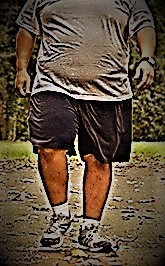
I grew up in a small town. So small, we didn’t have pasta—only macaroni and noodles. No one there had a “lifestyle,” only a life. We had ice cream, but no one I knew had ever heard of gelato. And, in that little town, only little boys wore short pants. And nobody wore a cap backwards unless they were playing catcher in a baseball game or milking a cow. That fashion sense—or lack of it—has stuck with me. All my pants have legs that go all the way down. And all my caps sit on my head facing forward. The bill, after all, exists to shade your eyes, and it can’t do that if it’s poking out the back. None of this makes me in any sense superior, you understand. In fact, it often makes me something of an oddity. But that’s all right. I wear what I wear, fashion be damned. And the world is a better place for not having to look at my knobby knees.
July 24, 2020
Where I’m going, Part Two.
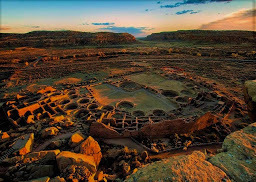 As is the case with many places I want to go, I have almost been to Chaco Canyon in New Mexico. We have driven Highway 550 through northern New Mexico, which passes to the east of Chaco Canyon. Likewise, we have been to Shiprock and other points to the north. And we have been (and will go again) to Canyon de Chelly, which lies to the west, in Arizona. But, despite wanting to, the time has never been right to venture out into the New Mexico desert to visit one of the most remarkable places anywhere. Over a period of some 150 years or more, Ancestral Puebloans built up numerous complex structures from sandstone blocks and timber. Some of the buildings contained hundreds of rooms, and were not equaled in size or scale on this continent for centuries. Many of the structures in Chaco Canyon were built in alignment with solstices and equinoxes and other orientations of the sun and moon, as well as with distant landmarks. Historians and archaeologists believe lengthy drought and, perhaps, warfare, led to the abandonment of Chaco Canyon. But no matter why they left, the people of Chaco Canyon left behind a place like no other. I would love to see it. And I will.
As is the case with many places I want to go, I have almost been to Chaco Canyon in New Mexico. We have driven Highway 550 through northern New Mexico, which passes to the east of Chaco Canyon. Likewise, we have been to Shiprock and other points to the north. And we have been (and will go again) to Canyon de Chelly, which lies to the west, in Arizona. But, despite wanting to, the time has never been right to venture out into the New Mexico desert to visit one of the most remarkable places anywhere. Over a period of some 150 years or more, Ancestral Puebloans built up numerous complex structures from sandstone blocks and timber. Some of the buildings contained hundreds of rooms, and were not equaled in size or scale on this continent for centuries. Many of the structures in Chaco Canyon were built in alignment with solstices and equinoxes and other orientations of the sun and moon, as well as with distant landmarks. Historians and archaeologists believe lengthy drought and, perhaps, warfare, led to the abandonment of Chaco Canyon. But no matter why they left, the people of Chaco Canyon left behind a place like no other. I would love to see it. And I will.
July 12, 2020
Me and Tex.
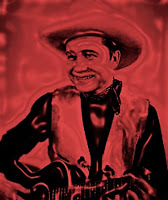
A long time ago, when I was going to college and for a while afterward, I worked at a radio station. I was the morning disc jockey and I played country music.
“Pop” country was all the rage at the time, so I spun a lot of songs by singers like Olivia Newton-John, Charlie Rich, Donna Fargo, John Denver, and so on. But I also played a lot of what we called “pure” country, as well as oldies. Now and then, I would slip in an old cowboy song.
Hang on for a little explanation for the younger set.
Most of the music we played was on “records” called “singles”; vinyl discs that were about seven inches across with a big hole in the middle, with one song on each side, that played on a turntable at 45 revolutions per minute. Sometimes we would play album cuts, from discs that were about twelve inches across, with a little hole in the middle, containing several songs, that played at 33 revolutions per minute.
You can imagine the bizarre sound if you played a record at the wrong speed, say a 45 rpm record at 33 rpm, which could and did happen on occasion.
Back to the story.
Sometimes, just for fun, I would play an old Tex Ritter song titled “Blood in the Saddle.” I liked playing it because, inevitably, someone—or several someones—would call the idiot at the radio station and tell him he was playing the record at the wrong speed.
If you’re not familiar with Tex Ritter’s “Blood in the Saddle” give it a listen (the link will take you to it).
And, no, it is not playing at the wrong speed. Not then. Not now.
July 1, 2020
Happy Independence Day!

No, my calendar is not out of whack. Today, July 2, is the day in 1776 the Continental Congress declared independence from Great Britain. John Adams, a leader of the revolution who would become the second president of the new nation, said this in a letter to his wife, Abigail:
The Second Day of July 1776, will be the most memorable Epocha, in the History of America. I am apt to believe that it will be celebrated, by succeeding generations, as the great anniversary Festival. It ought to be commemorated, as the Day of Deliverance by solemn Acts of Devotion to God Almighty. It ought to be solemnized with Pomp and Parade, with Shews, Games, Sports, Guns, Bells, Bonfires and Illuminations from one End of this Continent to the other from this Time forward forever more.
But, alas, despite Adams’s prediction, the official celebration is on July 4, the day the congress ratified the language of the Declaration of Independence. They did not get around to signing it until August 2, so an argument can be made that we should be popping off fireworks and holding parades on that day.Me, I’m sticking with July 2 and am flying the flag today.
June 26, 2020
Sad passing.
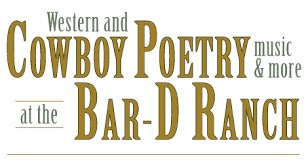
Twenty years ago and then some, CowboyPoetry.com showed up online. Established under a veil of mystery, the site started out sort of campy. But the brains behind it soon learned that cowboy poetry, even the funny kind, is a serious art.The brains behind it turned out to belong to the remarkable Margo Metegrano, who rode herd on the site, driving it to grow and develop into an institution. It became the world’s largest archive of cowboy poetry, both contemporary and classic. It promoted and reported on cowboy poetry events across the country. It featured relevant essays and commentary. And it spun off a blog and a Facebook page.It established Cowboy Poetry Week, and saw it ratified in the US Congress and by the governors of several states. It formed the Center for Western and Cowboy Poetry, which, among other things, produced a series of annual CDs featuring thematic collections of poems recited by folks from across the country, and distributed them to libraries everywhere.It was all a labor of love for Margo, who worked tirelessly to promote an art she had grown to love, becoming, perhaps, the most important and influential person in the cowboy poetry community—all the while content to stay in the shadows, all but invisible, save to the poets who came to know, love, appreciate, and respect her.Tireless finally turned to just plain tired, and Margo recently decided to hang it up. No one can, should, or does blame her. She deserves the rest. She earned it.But that doesn’t mean the cowboy poetry community isn’t mourning the passing. And its unlikely we will soon recover, for there will never, ever again, be anything quite like CowboyPoetry.com.
June 16, 2020
Anticipation.
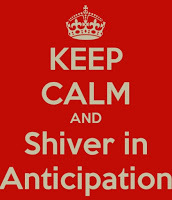
Having something to look forward to makes life more interesting. At least I have always thought so. It can be something big or small, important or trivial, consequential or just for fun. But having something, anything, on the horizon helps spur us on in the direction of life. At this writing, I have three new books on the shelf next to my bed that I cannot wait to get to. As soon as I finish the book I am enjoying now, I will open one of them—and I cannot decide which will come first. The books bear little resemblance to one another, but each is written by a writer I admire. There’s The King of Taos by Max Evans. If it’s anywhere near as good as his Hi-Lo Country or The Rounders, it will be well worth the wait. I once had the privilege of having lunch with Ol’ Max Evans and a few other writers. He said something I will never forget; in fact, I used the line as the basis for a poem. He was telling us a story—something, he said, that happened a long time ago. He paused, then said, “Hell, when you get to be my age, everything was a long time ago.”My friend Marc Cameron has a new novel, Stone Cross, featuring Arliss Cutter, a Deputy US Marshal stationed in Alaska—an assignment Marc knows all about, and his Arliss Cutter novels demonstrate that. Marc also knows about writing, and his political espionage thrillers featuring Jericho Quinn can keep you up nights.Finally (for now), I have a new collection of short stories by Wendell Berry, Stand By Me. I have read many, probably most, of the stories elsewhere, but Berry is such a remarkable writer I can’t wait to read them again.But I will have to wait. I will wait shivering with anticipation.

